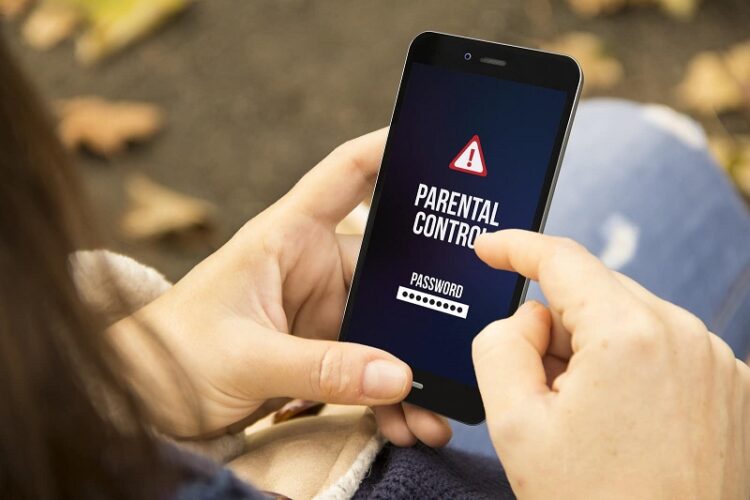
Kids and teens are increasingly accessing the Internet and the use of applications, phones, mobiles, tablets and other electronic devices at younger ages. That is why, the inappropriate content that they can access without the supervision of their parents, becomes one of their major concerns. The market, aware of this problem, has launched and commercialized increasingly sophisticated and technologically accurate applications that allow parents to control the child effectively. But where is the limit of this type of applications? Are they a tool for the control and security of the minor, or for ill, excessive and abusive espionage of the parents? What does the law say about it? Is there jurisprudence applicable to the specific case?
In this article, we will analyze some of the most innovative and effective applications in this matter.
Potential dangers

The police has identified a series of crimes and dangers that exist on the Internet against minors:
Grooming: are the deliberate actions of an adult to obtain friendship ties with a child on the internet, posing as another minor, in order to obtain sexual satisfaction through erotic or pornographic images of the child or even for a sexual encounter. These predators create fake online profiles, contact the minors and invite them to exchange erotic images, and then extort them and demand more photos or personal appointments.
Sexting: is when young people exchange photos of each other erotic, mainly from their phones or tablets. Although they are often shared in intimate spaces, they are sometimes used as an object of bullying or blackmail for sexual favors.
Cyberbullying: is the psychological and physical aggression and intimidation that a child or group of children performs against a third party using technological means. Sexual or humiliating images, photo montages or made-up stories are often used. It is also known as ‘cyberbullying’ and can lead to states of deep depression.
Child pornography: is the sexual abuse and exploitation of minors for any profit. It is considered a transnational crime and is punishable by imprisonment.
New parental control apps

Currently, there are many applications on the market (and they are proliferating more and more technically more complete, simple and easy to handle by parents) that allow you to manage the time that the teen spends in front of the computer or mobile, manage the contacts, control the content that it emits and the one that it receives, prevent access to inappropriate content or inappropriate web pages for its age, warn about a minor misuse, block pornography, games or applications or even monitor what the minor does with his electronic device. Most of these applications are free and can be downloaded very easily and installed on the device and on that of the parents.
As we will see some are completely legal, while at other times, we may be crossing the line of legality and morality. The important thing, as we will see, is knowing how to differentiate between supervision, protection, looking after minors and safeguarding their interests on the one hand, and on the other, knowing whether we are facing obsessive and unhealthy control or surveillance. Virtue, as Aristotle would say, will be in the middle ground and in responsible use of this type of applications.
We will briefly discuss some of the most useful parental control tools:
Quostod – It is presented as a complete tool for the supervision and protection of minors online. It works on desktops, laptops, mobile devices, and tablets. On its page, we can find some of the functions that the application offers: “alerts about questionable activities on social networks, stops all dangerous pages of a website – not only the initial page, it shows if the computer is used to do important tasks or entertainment, filters inappropriate content from searches, allows you to define limits for responsible use of Internet access, filters new or not yet categorized pages, blocks devices when limits are exceeded, supervises social networks such as Facebook or Twitter, supervises multiple children, and can be individually configured.
The problem is that in some points, as we will see, it may exceed its duty to watch over the minor and interfere in his private life. It will be the parent, who under his responsibility, must weigh the limit of the privacy of the minor, calibrating above all the age and maturity of the teens.

Spy Phone – Is made to turn a smartphone into a family tracker. Quick and easy to install, in less than a minute. You can always use GPS to access your teen’s location, and the application is also designed to automatically send the location every half hour, so you will have a complete itinerary of your teenager. You can find more information at spyphone.com about how to do this properly
Talk kids – It is a chat specially designed for children, as a WhatsApp for minors with certain particularities and that has had at the time of designing this application with the advice of experts. Parents will be able to manage much of its content and application, and they will be the only ones who can decide to accept contact requests, the times in which the minor can speak, the days of the week that you can use it … It also has an offensive word detector that informs the parents of the lowest emitter and receiver when there is inappropriate language, controls the traffic of the content as well as the photographs and videos that are issued and received, and even has a spell checker. Very useful and safe.
Kiddle – It is a search engine exclusively for children that works with Google. Through it our children will be able to surf the Internet with total tranquility and without having to worry about what they will find and go crazy with security.
Yahoo Kids – an equally secure search engine that in very similar terms to the previous one, allows children to browse safely so that they can access content appropriate for their age, without being able to access links, pages or inappropriate content.
Teen Safe – One of the most controversial applications as it is an instrument of control, surveillance and we would almost say espionage of the minor. This service allows you to monitor all the activity that the minor is doin with his mobile: the calls he makes, the messages he receives and sends, the places where he is, browsing history, and even access to his Facebook and Instagram accounts.

Ignore no more – An application designed by a mother, fed up with the fact that her youngest son did not return or answer their calls, and that it allows to block the phone, rendering it inoperative (except for emergency calls) if the minor repeatedly ignores the calls from his parents. This application, displaying its name, allows the mobile to be blocked even in the distance by means of a security code, which can only be unlocked by the parents when the minor returns calls.
Norton Family – It is a surveillance software, which lets you know the content that the minor downloads, the places he accesses and the pages he has visited. Complete control of the minor’s history.
Conclusion:
New technologies can be (and are) an incredible tool for the communication, information, creativity and socialization of teens. I will even say more, it is something unavoidable in our life and we cannot take them away, isolate them or separate them from reality, but it can be dangerous. The ideal would be to start with a motivated and reasoned talk in which these aspects are explained, or to set the conditions for the use of a smartphone.
As we have always indicated, it is an educational, responsibility and trust issue that is necessary.











